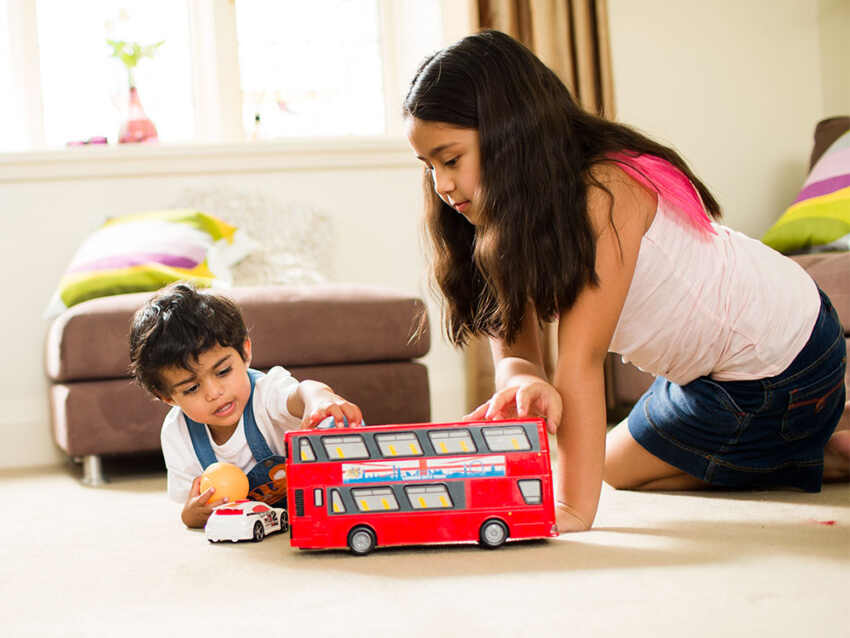What Are The Things to Know About Your Child’s Development
Every child develops in a slightly different way.
When you’re a first-time mom, there are probably a lot of things you don’t know about parenting. Also, you probably don’t know every detail about how your child is growing faster than you can blink.
Their brains and bones are becoming larger and stronger, and absorbing inputs from around them that will make them either stronger or weaker. As a parent invested in the health and success of her child, you have some control over how your son or daughter’s physical and emotional health develop.
Here are a few things about your child’s development you might want to know.
- The brain develops rapidly in the first few years of life.
Growth in this period is the most rapid of your child’s entire life, and it will set the framework for his or her adulthood. During these critical stages when genetics and the environment help children learn and grow, the foundations of a healthy life will be defined, including your little one’s physical and mental health, capacity to learn, ability to adapt to change, and resilience under difficult circumstances.
Understanding how quickly the brain develops can help parents determine their courses of action. For example, reinforcement of positive habits such as brushing teeth and saying “please” is best done during the early years of life because that’s when the brain is most likely to absorb such behaviors.
- There are dangerous illnesses and diseases for which children are at a higher risk.
Good hygiene and germ awareness are vital for everyone, of course, but children require a special amount of care. Their immune systems have not developed fully, and they’ll be less prepared to fight off illnesses that can pose more of a threat for their little, underdeveloped bodies.
For example, a grown adult in good health can usually handle the worst strain of the ’flu without a problem, but a three-year-old who has a weak immune system could end up in intensive care. Kids are also at a much higher risk to contract certain cancers, SIDS, RSV, whooping cough, croup, Kawasaki disease, Reye’s syndrome, and other serious illnesses that can damage their lifelong health.
Get regular checkups and consider vaccinations to help your child avoid developing any of these illnesses.
Children may develop an illness or developmental problem without your noticing. For example, children’s eyes typically mature when they’re very young. Problems with development and diseases can often occur, but children are too young to understand and let you know about a problem.
It’s essential that you monitor their physical well-being to catch health problems as they come.
- You have the power to set a foundation for emotional well-being.
According to research, children need a stable, responsive, and nurturing environment in which they feel safe and supported. They also need proper nutrition to fuel their rapid development, and strong relationships with adults and other children to form a solid emotional state of mind.
You’re in full control of that environment. You get to choose the neighborhoods your kids live in, the people they interact with, the schools they’ll go to, the food they eat at home, the number of hugs they receive, and the time you give them.
Create an environment of kindness, love, soft-spoken discipline, time, and support for the sake of your youngster’s healthy development.
- Health-care professionals are paramount in monitoring your child’s physical and emotional health.
It really does take a village to raise a child, and trusted health-care professionals play a critical role in this environment. Children should receive regular doctor visits: frequently when they’re infants and at least twice a year before they start school.
Doctors will monitor for health concerns that target young children and their development. They’ll also run developmental screenings to make sure your child is learning the basic skills for his or her age.
This information will identify potential delays that require immediate attention. Such attention can also spot more serious problems like autism, which is easier to handle if it’s caught at an early age.
- High-quality care and education early in life set the stage for success.
You don’t necessarily have to place your child in an expensive pre-school program. Your kids won’t lose out if they don’t get into the top schools.
But you should spend time educating your child when she or he is young. Teaching your little one the numbers, the alphabet, colors, and other basics can give the child a head start for when he or she enters the educational system.
The very best schools in the nation or your city are not utterly necessary for healthy development, but you can give your kids a jump start by screening schools before they attend. Schools that have higher funding but smaller class sizes tend to be better equipped to guarantee your child’s success in certain areas.
If you’re a parent, you can’t hope to control or even understand every facet of child development or prevent your kids from ever getting hurt. But you can give them the right tools to succeed in the future if you have a basic understanding of their needs.
When illnesses and developmental barriers rear their heads, you’ll be better prepared to provide the best possible parenting.
SHIJINA RIJESH
